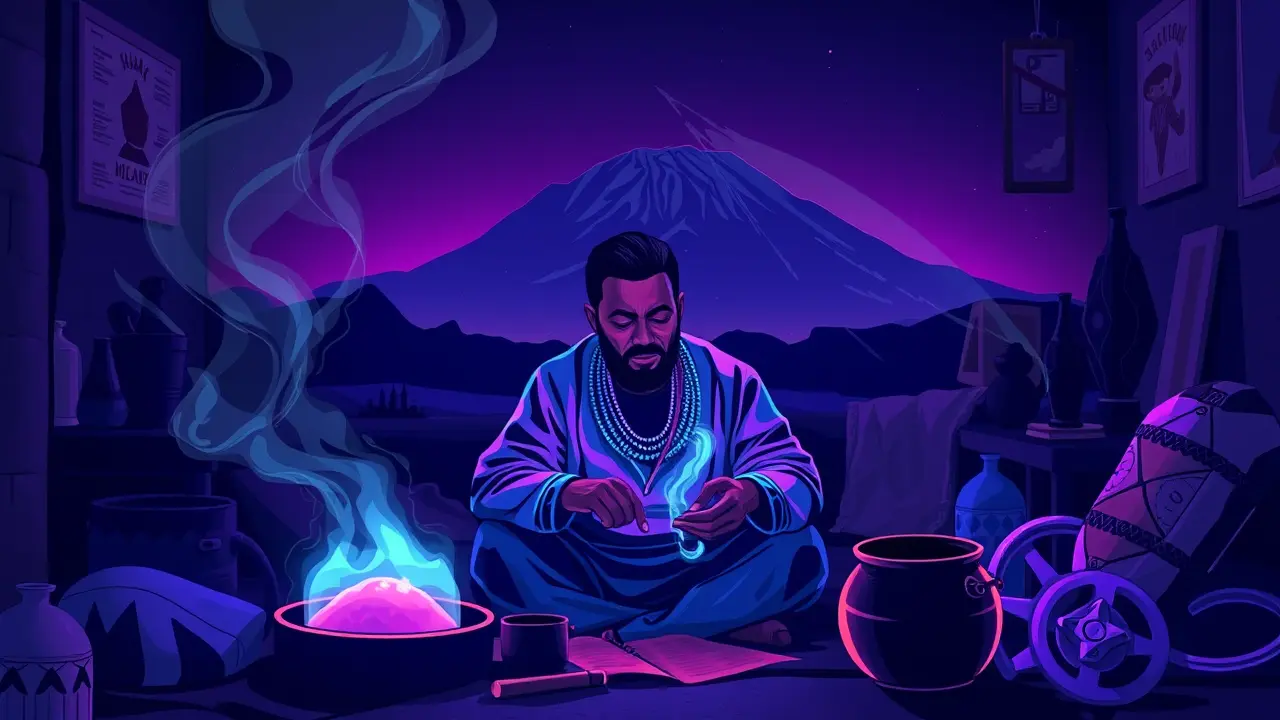South African Shamans Use Psychedelics for Unregulated Healing
In the shadow of Table Mountain, a quiet revolution in wellness is unfolding, one that exists far outside the gleaming corridors of conventional medicine and speaks to a deep, almost primal, human yearning for connection and healing. The work of unregulated shamans in Cape Town is not merely thriving; it's become a refuge for a growing number of individuals, from burnt-out corporate lawyers to disillusioned artists and seekers from across the globe, all drawn by the potent promise of psychedelic plant medicines like iboga and ayahuasca to mend fractured psyches.I sat with a man named Sipho, who asked that his real name not be used, in his modest home in the township of Khayelitsha, the air thick with the smoke of impepho sage. He spoke not in the clinical language of a therapist but in the gentle, metaphorical tones of a storyteller, explaining how he sees his role as a guide for souls lost in the 'dark forest' of modern life.'The white man's medicine treats the symptoms,' he told me, his hands carefully preparing a brew, 'but it often forgets the spirit. Our ancestors understood that to heal the body, you must first speak to the heart.' His 'clinic' is his living room, and his practice, passed down through his family, operates in a legal gray area, a space where ancient tradition collides with contemporary law. This isn't a new phenomenon, of course; the use of entheogens is woven into the very fabric of many African spiritual traditions, a historical precedent that long predates Western pharmacology.Yet, the current boom carries undeniable dangers that Sipho himself acknowledges with a sober gravity. Without standardized training, the quality of guides varies wildly, from deeply initiated sangomas to opportunistic charlatans capitalizing on the psychedelic renaissance.There are no medical screenings, no controlled environments, and no regulatory body to turn to if a journey turns from catharsis to trauma. A clinical psychologist I spoke with in a Cape Town suburb, who has treated tourists after difficult ceremonies, described it as 'Russian roulette with one's mental health,' pointing to the risks for those with predispositions to psychosis.But the people who seek out Sipho and others like him often tell a story of last resorts—of antidepressants that left them numb, of therapy that felt like an intellectual exercise, of a profound disconnection that modern life could not soothe. They speak of ceremonies not as recreational trips but as arduous, terrifying, and ultimately transformative voyages into their own subconscious, often emerging with a sense of clarity and integration they never thought possible.This creates a complex ethical landscape: how do we honor and preserve indigenous knowledge systems while ensuring the safety of those who are increasingly drawn to them? The solution is not simple prohibition, which would only push the practice further underground, but perhaps a path toward respectful integration, where the wisdom of the sangomas is acknowledged and some form of community-based accreditation or ethical guidelines can be developed, bridging two worlds that have too long been seen as oppositional. The story of Cape Town's shamans is, at its core, a human story about the search for meaning and the lengths to which people will go to feel whole again, a narrative that echoes in the quiet desperation of urban life everywhere.
It’s quiet here...Start the conversation by leaving the first comment.
© 2025 Outpoll Service LTD. All rights reserved.
